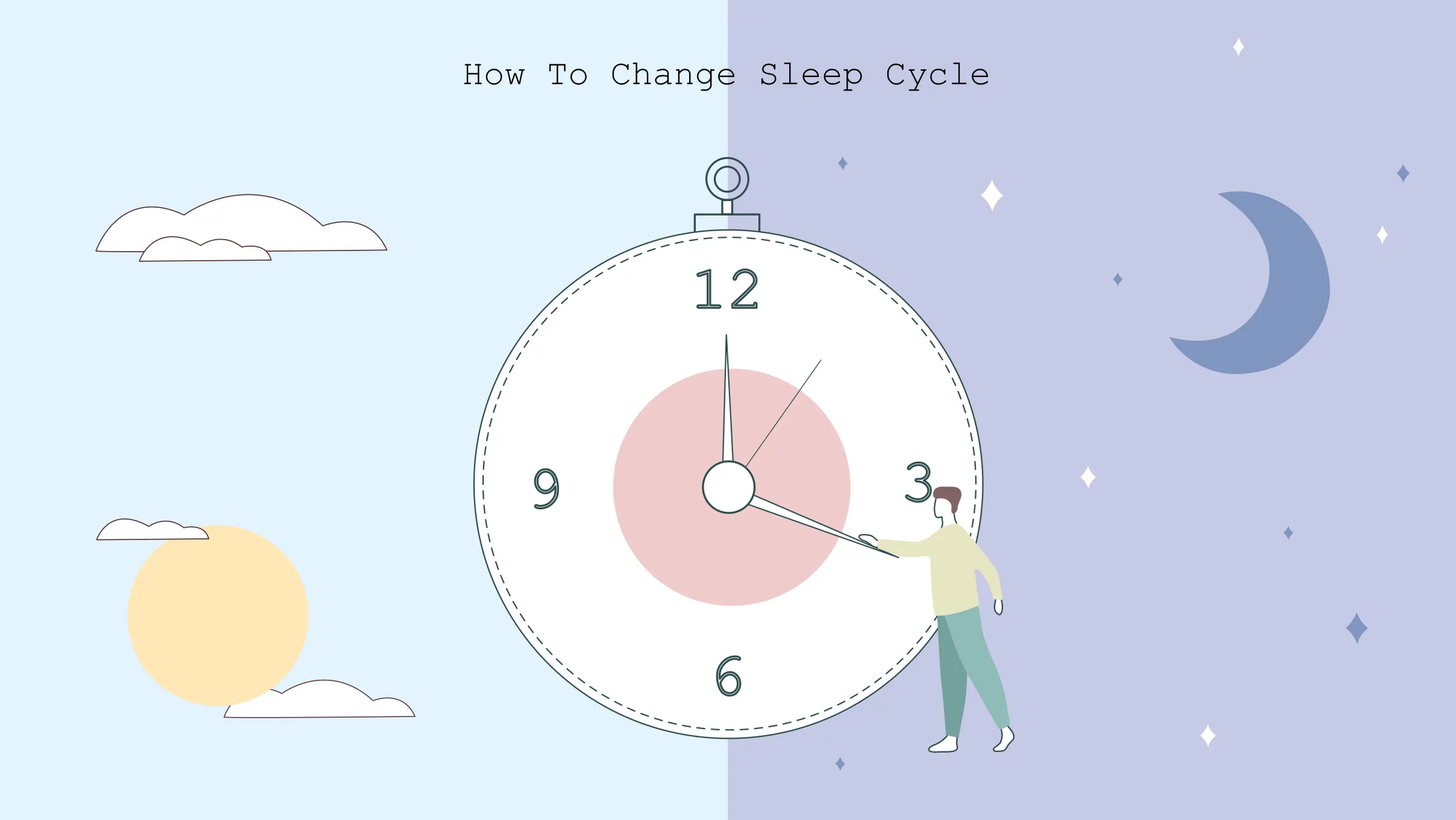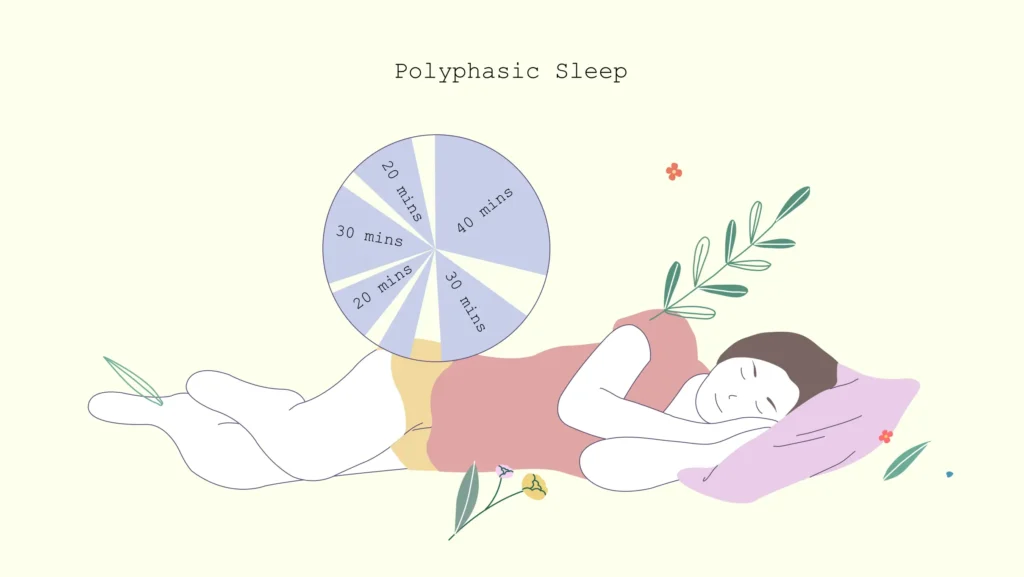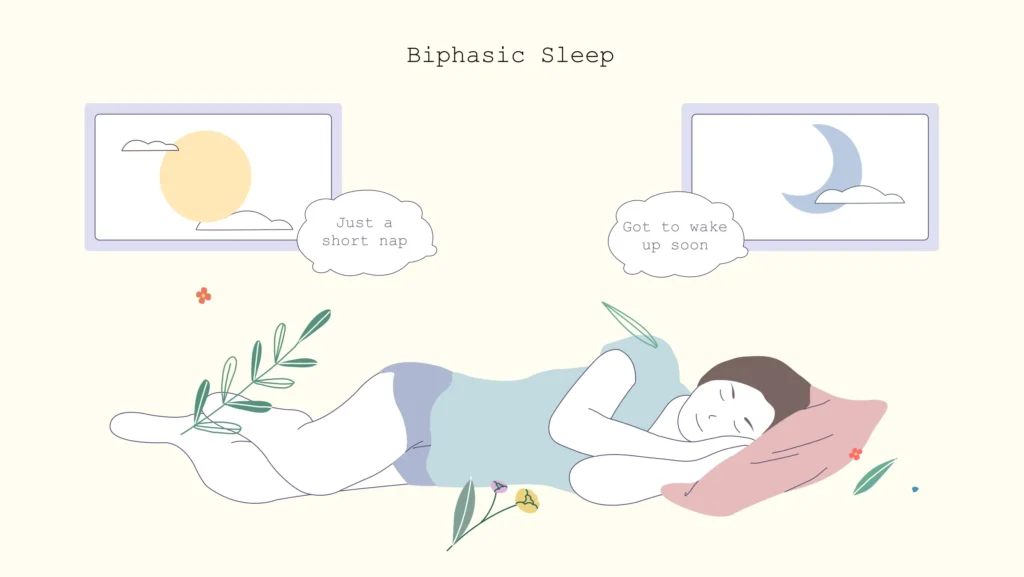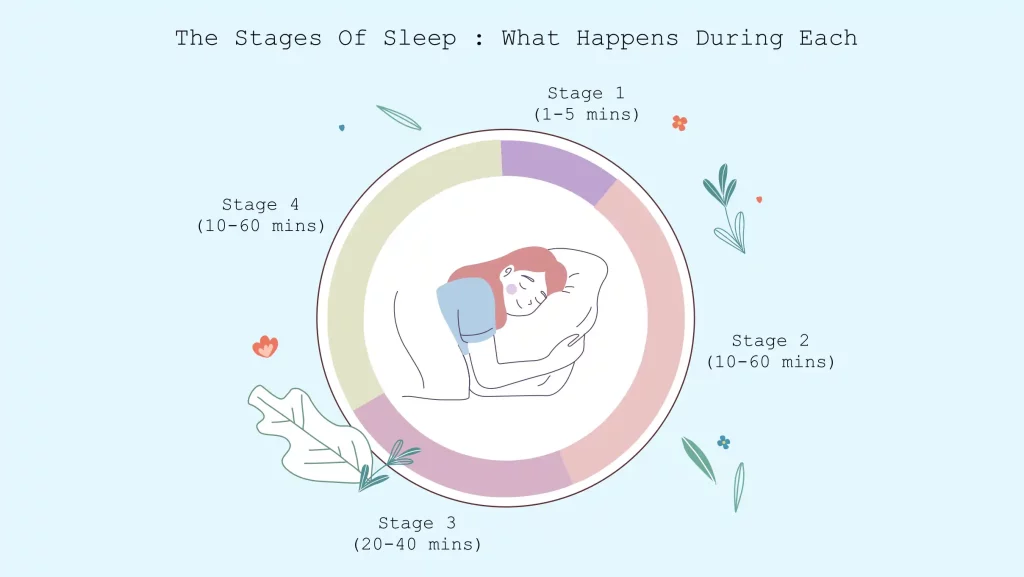How to Change Sleep Cycle?
Written by

Medical reviewed by


Table Of Content
The pandemic years have befouled our routine in every way possible. Most of us face similar issues from work timing knowing no bounds to having lunch at 4 pm. Our sleep cycles have also been affected immensely by this change. To explain the sleep cycle, we need to start by understanding that our bodies undergo two primary stages of sleep, non-REM and REM. The first one is non-REM which includes three stages with the last two involving deep sleep. REM sleep occurs just within an hour to an hour and a half post falling asleep. You generally start your sleep cycle within the first stage of non-REM sleep, followed by the other stages, and a brief period of REM sleep. A complete sleep cycle is of around 90 to 110 minutes.
Considering the recent shift in work schedules, and the inception of ‘Work-From-Home’, learning how to change the sleep cycle has become a prime factor. Let us learn how it can be done by incorporating some constructive steps.
1. Set Your Bedtime
The first step to fixing your poor sleep hygiene is fixing bedtime. Since our sleep cycles are generally 90 minutes long, people need to have five sleep cycles to get the utmost relaxation. Now, if we multiply 90 x 5, it results in 450. And by dividing 450 by 60, it results in 7.5 hours of sleep. You can now fix your sleep routine by understanding when exactly you need to doze off to get 7.5 hours of sleep.
2. Be Realistic When Setting Expectations
There is no point in setting unrealistic expectations knowing you cannot follow them. Start by considering your work schedule. A night shift employee can never be an early riser, on the other hand, a morning shift employee will find it hard to be a night owl. Therefore, thoroughly look into your lifestyle before fixing a routine.
3. Change Your Lifestyle
Small changes make a huge difference, especially when switching to a healthy sleep cycle. Lifestyle changes can be made by starting with little things like staying active since exercising helps decrease sleep issues, not indulging in naps during the day, and restraining alcohol and caffeine consumption. People who undergo anxiety can try journaling before bed to pen down all that is worrying them. This will help them release their stress before sleeping. People undergoing medications, diet pills, supplements, or herbs, need to clarify from their health care provider how it may affect their sleep cycle.
4. Make Gradual Changes
Start slow, and emphasize the trivial positive changes you are making in your sleep cycle. Start by shifting your sleep timing as little as 10 to 15 minutes earlier, slowly moving to half an hour. If the bedtime change is making you conscious, instead of feeling anxious embrace a positive change like reading a book, meditating, journaling, and so on. Stay engaged in the activity till you feel relaxed, and then go to sleep. In fact, this type of stimulus control is quite beneficial for people experiencing insomnia.
5. Rest Your Mind
Some of the biggest hindrances affecting your sleep cycle are restlessness, racing thoughts, anxiety, and more. Settling your mind before sleeping is important. Start unwinding at least 60 minutes before your sleeping time. You can incorporate small changes like practicing yoga, averting any sort of stressful media and news, limiting the screen timing of mobiles or laptops, meditating, reading a book, practicing guided breathing, and more. If you are a working professional, step away from your emails, tasks, and anything at all.
6. Curate Your Sleep Environment
With the work-from-home culture becoming normal, your bedroom might no longer be treated just for sleeping. You might have a WFH setup created, or your kid might have transformed the bedroom into a study room. But, since you are concerned about how to change your sleep cycle, achieving good sleep hygiene is mandatory.
Cool, dim, and soothing surroundings will result in the perfect sleep. One worthwhile way to set up your bedroom for sleep is placing a white noise machine and dim red light. Red light aids in better sleep and so does white noise.
7. Change Your Bedtime Habits
Your bedtime is suited for you to peacefully sleep and rest, and not finish the pending office work or school assignments. Instead of worrying about why you are not falling asleep right after lying down, work on making small changes. Try sleeping and waking at the right time every day, not consuming heavy meals before bedtime, taking a hot shower, and so on.
Common Causes of a Disturbed Sleep Cycle
Now that you know quite some ways of how to fix your sleep schedule, it is essential to know some facts about what causes changes in the sleep schedule. Below are some common causes behind it:
School commitments of kids
These days kids mostly have numerous study as well as project commitments at school. This leads them to stay sleep deprived late at night to complete the same since the deadlines are pretty strict.
Everyday Worries
Everyday worries like paying bills on time, switching off the gas, reaching the office early for a meeting the next day, and similar worries often wake us up while sleeping. The best way to handle these situations is to make a to-do list and list down every small work you need to do. This way you will be able to finish all the work and sleep peacefully.
Jet lag
Jet lag can be really frustrating, especially when it affects your sleep cycle badly. The long hours of flight, waking up to a new time zone, and a new bed with completely different surroundings, all these factors lead to a change in the natural circadian rhythm eventually affecting sleep. Jet lag even causes insomnia.
Alcohol Consumption
Drinking alcohol might provide you with momentary relief and offer sleepiness. But after some time, it will start affecting your sleep’s REM phase and interfere with your breathing. Moreover, going to sleep after consuming alcohol leads to peeing more often eventually hampering sleep.
A shift in work timings
Moving from a morning shift to a night shift can take a toll on the sleep cycle of the employee. And if you are concerned about how to reset your sleep schedule, start practicing the change in your sleep timings at least a few weeks before the actual change in shift.
Medical conditions
Certain medical conditions lead to changes or disrupted sleep cycles, especially insomnia. In this case, consulting the doctor might be a helpful option.
Medications
There are numerous medicines that cause insomnia like heart medications, antidepressants, stimulants, cholesterol medicines, and so on.
Artificial light and Screen Times
Avoid excess screen times right before bedtime, or keep an artificial light on while you are sleeping. It hampers the sleep cycle. This happens because electronic screens emit blue light which affects the circadian rhythm causing sleep issues.
Night shifts
Night shifts can be detrimental to your sleep cycle as you are deprived of the whole night’s sleep.
Conclusion
There are plentiful ways to change your sleep cycle, but you need to analyze the reason behind the disruption of sleep. Gradually implementing the aforementioned steps will alleviate your sleep problems leading to daily dosages of peaceful sleep.
FAQs
Can all nighter reset the sleep cycle?
No, all-nighters are not meant to reset or fix your sleep schedule. In fact, it will disrupt it even more.
Are 2 hours of sleep better than none?
Any amount of sleep is better than none, and that counts even 20-minute nap.
Should I skip a night of sleep to reset?
Pulling an all-nighter will make you even more tired and groggier.
people like this article
Written by

Medical reviewed by





